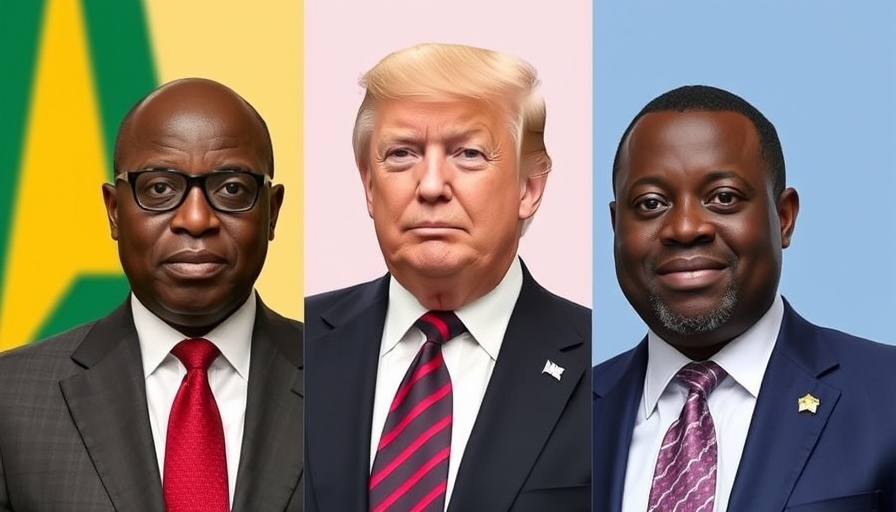
Congo's Shift: From Lobbying to Direct Engagement
In a significant move aimed at enhancing its diplomatic footprint, the Democratic Republic of Congo (DRC) has terminated its $5 million contract with American public relations firm Earhart Turner LLC. This decision aligns with Congo's new strategy to engage directly with the Trump administration as both nations express a mutual interest in revamping economic ties.
The Congolese government recently signaled a stark pivot in its diplomatic approach, emphasizing direct conversations with U.S. officials through authorized channels. Tina Salama, spokesperson for President Félix Tshisekedi, articulated this strategic change, underscoring the DRC's determination to strengthen bilateral relations without the intermediary role of foreign lobbyists.
Understanding the Motivations Behind Congo's Decision
This decision follows a visit to Congo by Massad Boulos, the U.S. senior advisor for Africa, which has ignited discussions about potential partnerships, particularly in mineral extraction and energy resources. Congressman Boulos aimed to create a foundation for future opportunities, promising to prioritize mutual interests.
Congo's resource wealth, particularly its minerals crucial for global technology, positions it as a strategic player in U.S. foreign policy, especially given the increasing focus on securing critical resources amidst global competition. The discussion around relaunching these ties comes at a time when both countries seek to reassess their goals and expectations.
Implications for Economic Collaboration with the U.S.
The termination of the lobbying contract and the emphasis on direct talks indicates a shift towards transparency and a more strategic alignment in managing foreign relationships. Stakeholders within the DRC, including Senator Jean Bamanisa, have advocated for a unified and effective approach to partnerships that better integrates national interests, addressing long-standing issues such as security, infrastructure, and healthcare.
Congo's decision could reshape its engagement with the private sector, as it sets the stage for potential mineral deals that may include American firms moving forward. The emphasis on direct negotiations may foster deeper ties that can contribute significantly to the DRC's economic revitalization and enhance its position in the global market.
The Future of U.S.-Congo Relations: Broader Context
This realignment is reflective of a broader trend in African geopolitics where nations are increasingly looking to leverage their natural resources and geopolitical positioning without relying solely on external advisory firms. The DRC's approach could serve as a model for other African nations striving to enhance their global standing through direct diplomacy, enabling them to reap the benefits of international collaborations.
Conclusion: The Path Ahead for Congo and the U.S.
As Congo seeks to engage proactively with U.S. policymakers, the emphasis on establishing direct channels could yield long-term benefits for both parties. For business leaders and investors tracking trends in Africa, this shift is noteworthy, suggesting new avenues for collaboration in various sectors. Understanding these developments is crucial for those monitoring the evolving landscape of the African economy.
 Add Row
Add Row  Add
Add 


 Add Row
Add Row  Add
Add 

Write A Comment